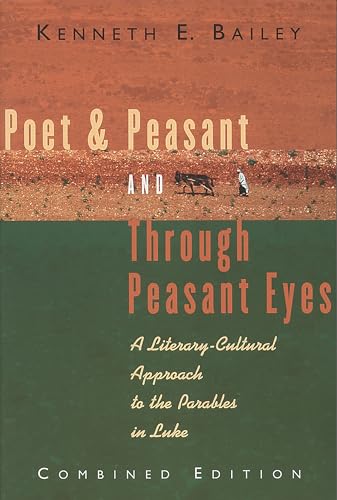Zimmerli’s book began as a series of lectures to Göttingen students in 1970. The series was provoked by Bultmann’s very negative estimate of the Old Testament as a proof-by-failure of the need of the New Testament with its transcendent, eschatological, other-worldly concerns. Zimmerli is unembarrassed by the Old Testament’s this-worldly concern, insisting that this is not because of arrogant, humanistic independence of God but precisely because God’s love is revealed to, in and for this everyday world.
Zimmerli develops his thesis thus: God in the Old Testament is the God of history; faith is historical not philosophical, resting on critical events of history not cyclical events of nature. God is the sovereign disposer of historical events, in which we may or must meet him.
In both creation accounts in Genesis the work of creation climaxes with man, ennobled and endangered by his own freedom (p. 26).
Man shares with animals the command to be fruitful and multiply. Despite the effects of the fall in this area of sexuality, the Old Testament with hope does not look for a higher, more spiritual way. Man’s awesome privilege is to rule the world. By wisdom man attempts to do so—questioning the incomprehensible and taking care of little things. There is no escape from this stewardship into less worldly occupations, even for Qoheleth the questioner or Job the sufferer.
God made Israel his people by an historical act. He gave them their land by Yahweh’s wars. But if they are unfaithful, he will bring upon them his own disastrous judgements. Thus in victory or defeat they will know that he is Yahweh.
From the beginning to the end, the Old Testament insists that the land is a gift not a right. Sabbath, jubilee and commandments reinforce the point.
What is special about people of Israel? Not some blood-and-soil nationalism, later racism, but their origin in a common historical experience; God lifted them up on eagles’ wings (Ex. 19) and rescued the foundling child (Ezk. 16). Their honour and dignity lies not in their achievements but in their obedience and holiness.
Neither her law nor her liturgy summon Israel away into a ‘spiritual’ world. Considering the preoccupations of the surrounding with life beyond the grave, the Old Testament is remarkable in confining its attention for the most part to this life.
What hopes did Israel have for the future? Were they merely other-worldly, a turning away from this world? No; the glorious vision of a new world a new Jerusalem in the Old Testament marks a resolute turning away from self-centred interiorism or nihilistic apathy towards the world. God is going to make a new world!
Zimmerli’s critical position appears to be fairly moderate by German standards. The Pentateuch, as we have it, has three older written sources (J, E, P). There are two creation accounts (p. 16). He is dubious about a ‘whole nation exodus’ (p. 101). The historical value of the Joshua conquest narrative is questionable (p. 54). Daniel in its final form belongs to the Seleucid period (p. 131).
He marshals the biblical evidence on his chosen themes helpfully. As a reader working in Asia I would look for more applied theology. Zimmerli provides something of a foundation for consideration of various important themes: creation, conservation, nationalism, property rights, worship, hope. But there is a lot of building to be done.
Apart from a couple of glaring errors, one on the contents page, the printing is pleasant. The British edition works out at over 2.5p per page.
Howard Peskett
Trinity College, Bristol






